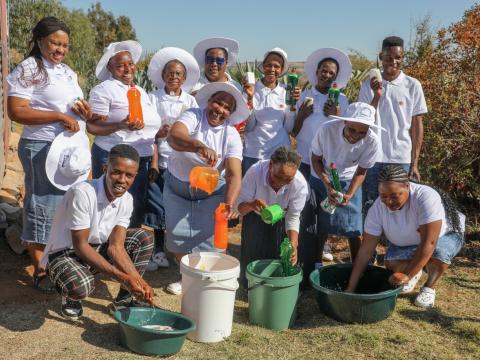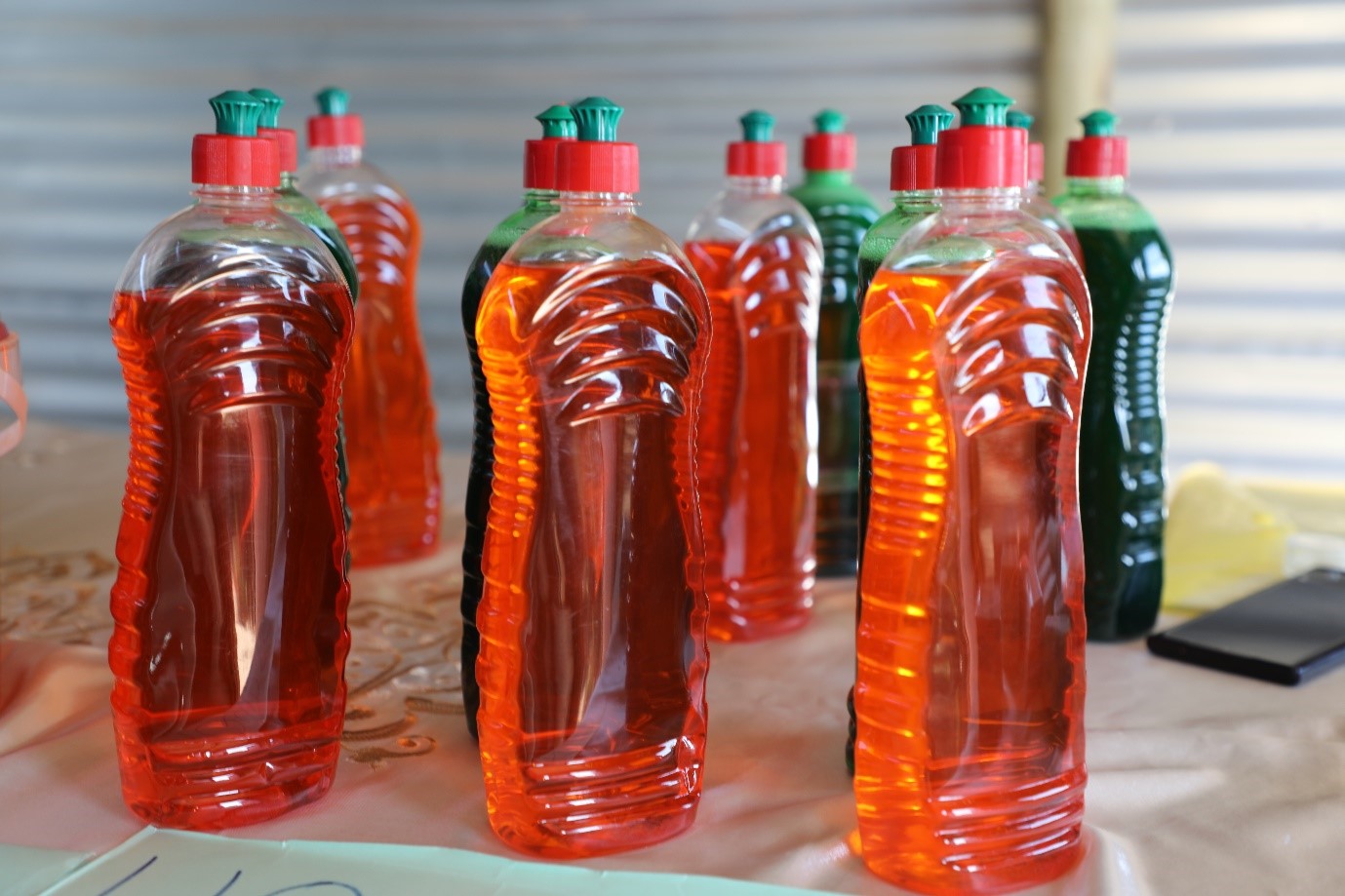Hloa-Leri Nutrition Club: Stepping Up the Ladder to Overcome Poverty and Build a Sustainable Future

By: Reentseng Phephetho, Communications & Digital Officer, Lesotho
In the small village of Ha Letsoela, located in the Leribe district, a group of determined individuals are working hard to combat poverty in all its forms. This community, united under the common goal of creating sustainable incomes for their families and children, faces numerous challenges affecting the growth and development of their children. Despite these obstacles, their resolve remains unshaken.
The "Hloa-Leri Nutrition Club," which translates to "Step up the ladder," consists of 14 dedicated members,12 women and 2 men. The group engages in various activities such as farming, cooking, and knitting mats to support their families. However, climate change has adversely affected their vegetable farming, and livelihoods as they struggle to feed their children or sell their produce for income. "I felt so depressed when I could not provide for my children’s daily needs," said Malipuo Lieta, expressing a sentiment shared by many in the community.
"I felt so depressed when I could not provide for my children’s daily needs" - Malipuo
Another challenge this community faced was a lack of hygiene, which became even more critical during the COVID-19 pandemic when handwashing with soap and running water was highly recommended. Recognizing the group's determination, World Vision Lesotho stepped in to help. They advised the club to venture into soap making, addressing hygiene issues while providing a new source of income to combat poverty.
“This poverty caused us lots of conflicts with our neighbors because we used to rely on them for basic necessities, including money and not afford to repay. By venturing into soap making, we were also rebuilding good relationships within the village while addressing poverty,” remarked Mapusetso Lieta, highlighting the positive social impact of the initiative.
Water, sanitation, and hygiene (WASH) are essential for the health and prosperity of children and their families. Through its WASH technical programme, World Vision Lesotho supported the Hloa-Leri Nutrition Club in their new venture. In January 2024, World Vision provided comprehensive training that equipped members with various soap-making skills, including the production of dishwashing, laundry, and bath soaps. Additionally, the group received essential soap-making equipment and initial stock to kickstart their business.

The impact of this intervention has been profound. Improved hygiene practices are now evident within the community, and the positive response from buyers has enabled the club to sell their products on a larger scale, reaching neighbouring villages. The club now generates up to M2,500.00 monthly (approx. USD 138, which they lend among themselves to accumulate interest, further strengthening their financial stability.
The transformation within the community is remarkable. With the income from soap sales, members can now feed and care for their children. Conflicts between neighbours have significantly decreased as the community no longer needs to rely on each other for basic necessities. They can now afford their families better. “My children are no longer getting expelled from school due to unpaid fees. I am now able to provide for their daily needs with sales from this project.” remarked Malipuo Lieta.
"My children are no longer getting expelled from school due to unpaid fees. I am now able to provide for their daily needs with sales from this project" - Malipuo
As part of their sustainability plan, club members are engaging their children in the project during school holidays, teaching them soap-making skills. Their hope is to eventually earn monthly salaries from their sales, expand their operations to supply large supermarkets across Lesotho, and create employment opportunities.
The Hloa-Leri Nutrition Club stands as a testament to the power of community resilience and innovation. Through their collective efforts and the support of World Vision, they are not only overcoming poverty but also building a healthier, more prosperous future for their families, children and the wider community.